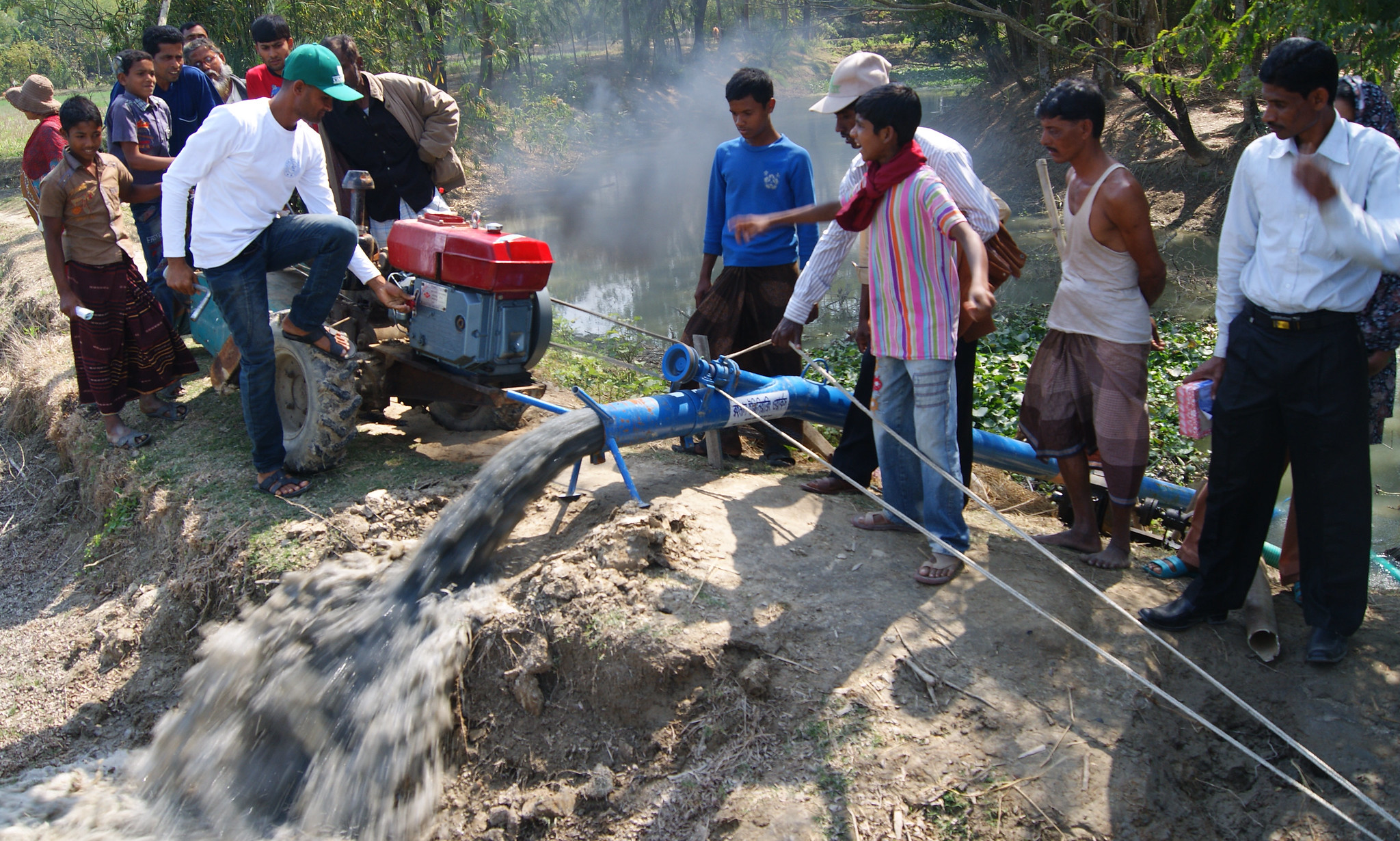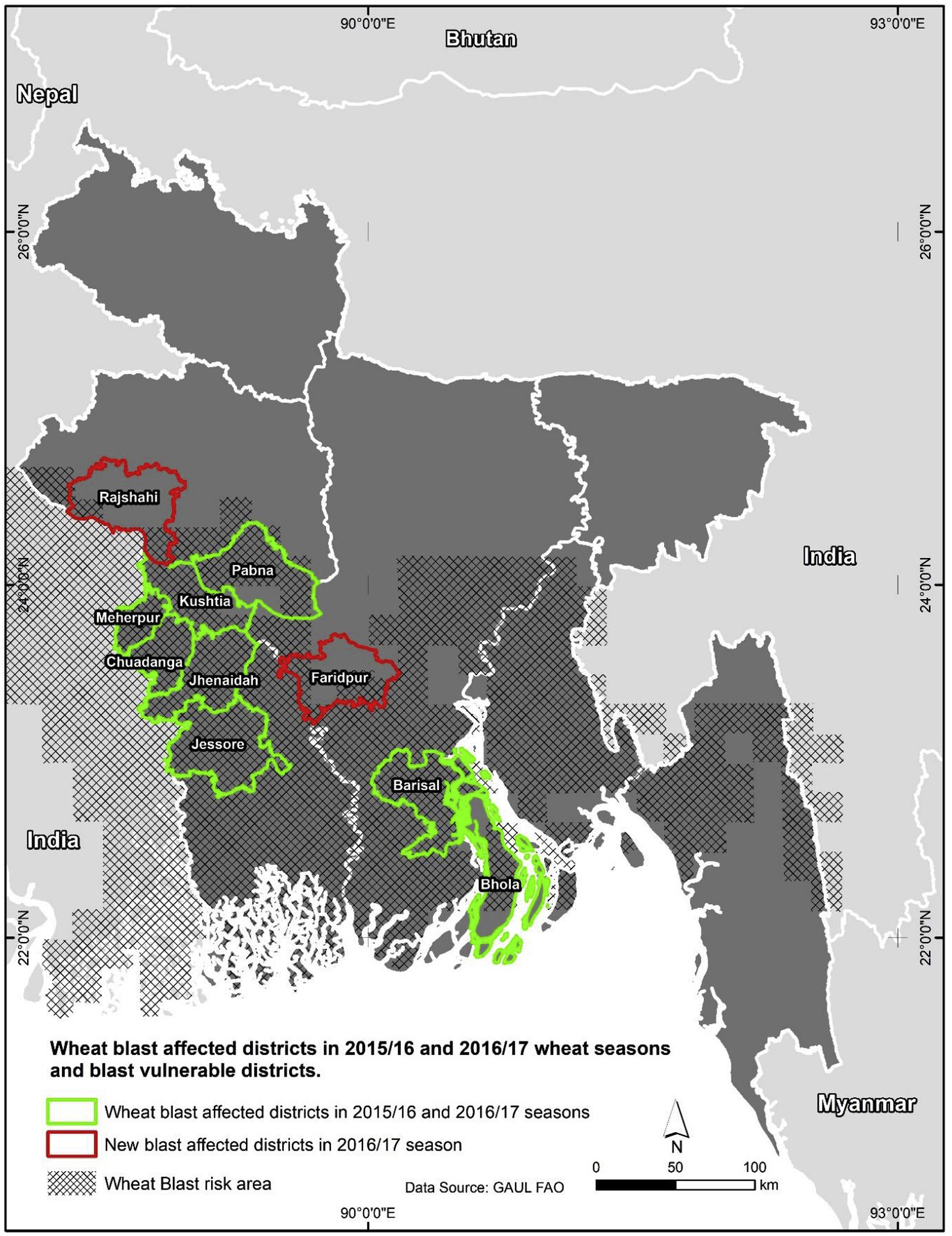Female-headed households are likely to experience higher welfare losses due to commodity price hikes than their male-headed counterparts, as they tend to spend a larger percentage of their income on food items. However, the full extent of this impact of market has not been widely examined in the empirical literature.
Applying the difference-in-difference estimation procedure to data collected from more than 22,000 households in Bangladesh in 2005 and 2010, researchers at the International Maize and Wheat Improvement Center (CIMMYT) set out to examine the gender-differentiated impacts of the commodity price hikes during the food price crisis of 2008 on food and non-food consumption behavior based on the sex of the household head.
They found that, in general, the commodity price hikes had more adversely affected female-headed households, which reduced their expenditure on food and non-food items such as cereals and education at a greater rate than their male-headed counterparts did.
However, their study also reveals that the welfare impacts on these households varied greatly depending on socio-economic conditions. Results showed that households headed by women who were relatively better educated, who owned larger pieces of land and received remittances were buffered to a certain extent and their expenditure was affected less.
Understanding these buffering factors, the authors argue, is crucial when designing policy interventions in developing countries. The study provides a number of recommendations for government and international donor agencies to help female-headed households better cope with market shocks. For example, they could improve the reach of general education, increase women’s access to land and agricultural assets and remove barriers to the in-flow of remittances for female-headed households. Extending the reach of social protection and microcredit programs could further complement market shock buffering capacity, as could providing targeted capital.
Read more results and recommendations in the study, “Do market shocks generate gender-differentiated impacts? Policy implications from a quasi-natural experiment in Bangladesh” in Women’s Studies International Forum, Volume 76, September–October 2019.
This study was made possible through the support provided by the United States Agency for International Development (USAID) to the Cereal Systems Initiative for South Asia – Mechanization and Irrigation (CSISA-MI) project, and the Bill & Melinda Gates Foundation to the CSISA Phase II project.
See more recent publications by CIMMYT researchers:
- Elucidating the genetic basis of biomass accumulation and radiation use efficiency in spring wheat and its role in yield potential. 2019. Molero, G., Joynson, R. , Piñera Chavez, F.J. , Gardiner, L.J. , Rivera Amado, A.C. , Hall, A.J.W. , Reynolds, M.P. In: Plant Biotechnology Journal v. 17, no. 7, p. 1276-1288.
- Identification of recombinants carrying stripe rust resistance gene Yr57 and adult plant stem rust resistance gene Sr2 through marker‐assisted selection. 2019. Lodhi, S., Bariana, H.S., Randhawa, M.S., Gul Kazi, A., Peter John., Bansal, U. In: Plant Breeding v. 138, no. 2, p. 148-152.
- Effect of different tillage and residue management practices on crop and water productivity and economics in maize (Zea mays) based rotations. 2019. Parihar M.D., Parihar, C.M., Nanwal, R.K., Singh, A.K., Jat, S.L., Hari S. Nayak, Prakash Chand Ghasal, Jewlia, H.R., Choudhary, M. , Jat, M.L. In: Indian Journal of Agricultural Sciences v. 89, no. 2.
- A multi-scale and multi-model gridded framework for forecasting crop production, risk analysis, and climate change impact studies. 2019. Shelia, V., Hansen, J., Sharda, V., Porter, C., Aggarwal, P.K., Wilkerson, C.J., Hoogenboom, G. In: Environmental Modelling and Software v. 115, no. 144-154.
- Averting wheat blast by implementing a ‘wheat holiday’: in search of alternative crops in West Bengal, India. 2019. Mottaleb, K.A., Singh, P.K., Sonder, K., Kruseman, G., Erenstein, O. In: PLoS One v. 114, no. 2, art. E0211410.
- Estimating soil evaporation in dry seeded rice and wheat crops after wetting events. 2019. Gupta, N., Eberbach, P.L., Humphreys, E., Singh, B., Sudhir-Yadav, Kukal, S.S. In: Agricultural Water Management v. 217, p. 98-106.
- Dependence of temperature sensitivity of soil organic carbon decomposition on nutrient management options under conservation agriculture in a sub-tropical Inceptisol. 2019. Parihar, C.M., Singh, A.K., Jat, S.L., Ghosh, A., Dey, A., Hari S. Nayak, Parihar M.D., Mahala, D.M., Yadav, R.K., Rai, V., Satayanaryana, T., Jat, M.L. In: Soil and Tillage Research v. 190, p. 50-60.
- Biogas adoption and elucidating its impacts in India: implications for policy. 2019. Mottaleb, K.A., Rahut, D.B. In: Biomass and Bioenergy v. 123, p. 166-174.
- Reaction of Australian durum, common wheat and triticale genotypes to Karnal bunt (Tilletia indica) infection under artificial inoculation in the field. 2019. Emebiri, L. C., Singh, P.K. , Tan, M. K. , Fuentes Dávila, G., Xinyao He, Singh, R.P. In: Crop and Pasture Science v. 70, no. 2, p. 107-112.
- A farm-level assessment of labor and mechanization in Eastern and Southern Africa. 2019. Baudron, F., Misiko, M.T., Getnet, B., Nazare, R., Sariah, J., Kaumbutho, P. In: Agronomy for Sustainable Development v. 39, no. 2, art. 17.

 Gender equality, youth and social inclusion
Gender equality, youth and social inclusion 


